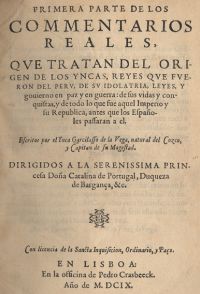
Institut für Romanische Philologie
Postadresse: Ludwigstrasse 25, 80539 München
Telefon: 089-2180-3417 und 3426
Telefax: 089-2180-16466
www.romanistik.uni-muenchen.de
Projektleiter
Prof. Dr. Wulf Oesterreicher
wulf.oesterreicher@romanistik.uni-muenchen.de
Mitarbeiter
Dr. Robert Folger, Ph.D, wiss. Ang.
Folger@lmu.de
089-2180-4077
Kongress
Rückschau
Vorträge der Projektleiter/Mitarbeiter
Projektbeschreibung
Die spanische Eroberung und Kolonisation Amerikas wird begleitet von einer Expansion der europäischen Schriftkultur, die die indianische Bevölkerung und die spanischen Konquistadoren und Kolonisten in ein dichtes Netz administrativer Schriftprozesse einbindet. Diese Erweiterung der Trägergruppen produziert eine Pluralisierung von Diskurs- und Textgestaltungen, die aus den pragmatischen Interessen der Eroberung resultiert. In diesem Kontext entstehen Berichte über die Vorgänge bei der Eroberung und Kolonisierung sowie über anschließend unter den Spaniern aufbrechende Konflikte (Rebellionen und Bürgerkriege). Auf der einen Seite entstehen diese Texte als Antwort auf das Informationsbedürfnis der kolonialen Autoritäten in der Alten Welt, die Entscheidungen und Planungen wesentlich an 'historischem' Wissen ausrichten. Auf der anderen Seite sind historiographische Text der Zeit oft direkt zu verstehen als Versuche, die noch 'autoritätsarme' amerikanische Wirklichkeit von der Neuen Welt aus zu gestalten.
Im Projekt interessieren besonders diejenigen Texte, die die Spannungen und Konflikte in den Kolonien aus alltagsweltlicher Perspektive zu verarbeiten suchen. Die Verfasser versuchen, von den eigenen und gruppenbezogenen Interessen aus politische, militärische, administrative und besitzrechtliche Ordnungsstrukturen zu entwerfen. In die Argumentation dieser Texte gehen einmal legitimatorisch verwendete Diskurselemente ein, die aus historiographischen Traditionen stammen. Sodann gilt es auch Figuren zu erkennen, die aus dem gelehrten Diskurs zur rechtlichen Fundierung von Eroberung und Kolonisation stammen und die ein 'Absinken' juristischer Diskursivität in alltägliches Rechts- und Problembewußtsein dokumentieren. Daneben rücken von den kolonialen Institutionen sanktionierte Geschichtswerke in den Blickpunkt, die versuchen, die Vielzahl der Stimmen zu disziplinieren und die Geschichte der Neuen Welt im kulturellen Gedächtnis zu verankern.
Wichtige Aspekte der Pragmatik der untersuchten Texte können durch die Rekonstruktion der historischen Bedingungen der Textproduktion und -rezeption erfasst werden. Konzeptionell lässt sie sich in den Begriffen von Strategien — institutionalisierte Praktiken, die von einem diskursiven Ort aus operieren — und Taktiken — okkasionelle, 'nomadische' Praktiken — beschreiben. Das Projekt untersucht die Diskurskonfigurationen, in denen staatliche und kirchliche Autorität sowie Individuen und Interessengruppen in den Kolonien um eine autoritative Interpretation der historischen Informationen ringen.
New World and Old World — Pragmatization of historiographic and juridical discourses during the Spanish colonization of America.
The Spanish conquest and colonization of the Americas is paralleled by an expansion of European literacy which affects the indigenous populations. Moreover, the Spanish conquistadors and settlers are entangled in a tight net of Administration which operates essentially on the basis of written documents. The encroachment of bureaucracy on the everyday life of formerly aliterate social groups effects a diversification of discourses and textual forms. This process is related with the pragmatic interests of the conquest: "Sin la pluma no corta la espada" ("The sword does not cut without the pen"). Thus we have to see reports about the events of the conquest and colonization and, later, about the conflicts between Spaniards (rebellions and civil wars) in this context. On one hand, these texts are the response to the colonial authorities' need for information; the institutions in the Old World base their decisions and plans essentially on "historic" knowledge. Historiographical works of the time, on the other hand, frequently reflect their authors' partisan opinions; often they can be understood as straightforward attempts to shape the American reality from the New World.
Of particular interest are texts which tackle the tensions and conflicts in the colonies from the perspective of everyday life. The authors strive to transform their own interests into power structures. While historiographical traditions shape their argumentation, it is crucial to identify figures which are derived from the learned discourse which aimed at providing a legal foundation for conquest and colonization, and to document the importance of legal discourse in everyday life. The project will focus on historiographical works initiated and backed-up by colonial institutions which attempt to discipline the multitude of voices and anchor the history of the New World into the cultural memory.
The main objective of the project is reconstructing the discourses in which colonial authorities and individuals and interest groups in the colonies struggle over an authoritative interpretation of the historical data. In this process, the text under consideration will be read in the context of historical conditions of text production and reception and against the horizon of the interpretive concepts of "tactics" and "strategies" adapted from Michel de Certeau.
